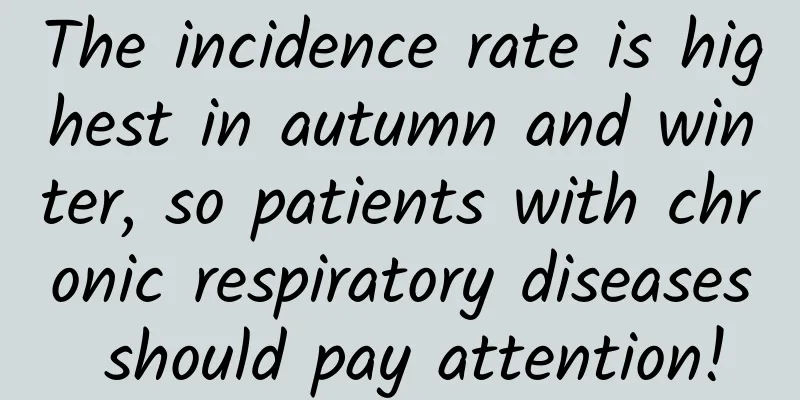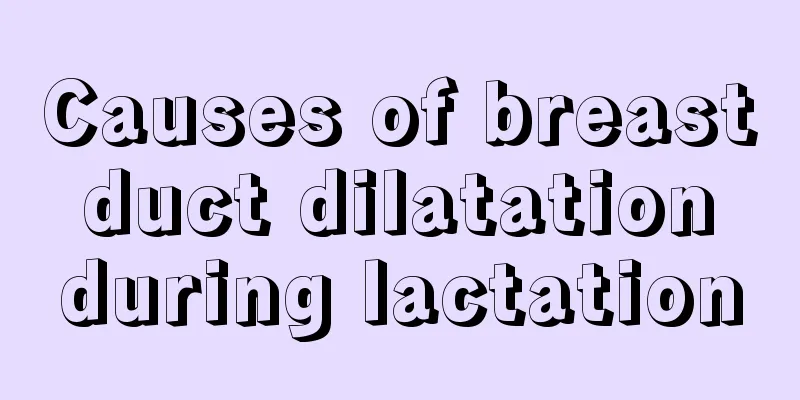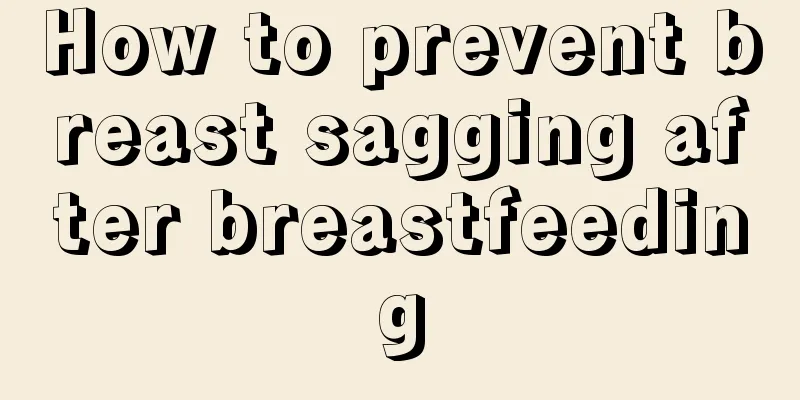The incidence rate is highest in autumn and winter, so patients with chronic respiratory diseases should pay attention!

|
With the arrival of autumn and winter, we have found that the number of patients with cough and asthma has increased . In particular, the human body is more sensitive to weather changes in autumn and winter. Cold weather can easily reduce the body's immunity, leading to colds and respiratory infections. However, there are many patients with emphysema, which is also known as chronic obstructive pulmonary disease (COPD) in modern medicine. It is mainly manifested by long-term cough, sputum, asthma, and even hypoxia, which lasts for at least 3 months a year. Traditional Chinese medicine believes that in autumn, the lung qi begins to converge downward so that the human body can store the kidney in winter. If the patient's lung and kidney qi are weak and cannot adapt to the qi mechanism of autumn, symptoms of cough and asthma will occur. There are only two common causes of emphysema in clinical practice. One is long-term smoking for ten or twenty years, including those who are forced to be exposed to secondhand smoke; the other is patients with a history of chronic lung diseases , such as long-term bronchial asthma, chronic bronchitis and other chronic cough and sputum symptoms, and patients with a history of tuberculosis . These chronic lung diseases will consume lung qi. Chinese medicine says that "long-term illness affects the kidneys" and affects the deficiency of lung and spleen qi. Over time, phlegm will be produced to block the lung system, causing patients to cough and wheeze. Others include genetics, air pollution, and exposure to occupational dust. We can first do a self-test to see how great our risk of disease is. 1. Are you a smoker now, or have you ever smoked for more than 10 years? 2. Do you cough several times a day with phlegm or have you suffered from chronic lung disease for more than ten years? 3. Are you more likely to experience breathing difficulties, chest tightness, and decreased mobility when climbing stairs or doing housework than your peers? 4. Do you feel shortness of breath or chest tightness more easily than people of the same age? 5. Are you over 40 years old? If you answer "yes" to two or more of the above five questions, you should be careful that you may have emphysema . You should also be vigilant and go to a professional hospital for a lung function test in time for early diagnosis and treatment, and to rule out other causes. Don't worry! Although emphysema is an irreversible pathological change, it will not have much impact on our daily life as long as we take good precautions. Just do the following: 1. Quit smoking and drinking 2. Control the primary disease. Recurrent coughing, such as asthma, requires systematic treatment from a professional doctor. 3. Pay attention to dietary adjustments, eat a light diet, eat a moderate amount of meat, and eat more light foods that moisten the lungs and eliminate phlegm, such as carrots, pumpkin, cabbage, tofu, etc. 4. Adjust the temperature to keep warm and avoid colds that may aggravate coughing, asthma, etc. 5. Do appropriate exercise. Choose gentle exercises according to the patient's own physical strength, such as Tai Chi, Ba Duan Jin, jogging, etc., which can increase the body's oxygen content and lung capacity. Modern medicine has discovered that it is caused by various reasons that reduce lung elasticity, airway obstruction, and alveolar damage, which ultimately lead to coughing, wheezing, fatigue, and symptoms such as hypoxia over time. Traditional Chinese medicine believes that this disease is caused by the patient's own lung, spleen and kidney qi deficiency, and phlegm blocking the airway. Therefore, we can usually help us relieve the symptoms of coughing and phlegm by massaging acupoints. 1. Massage the Danzhong point : Danzhong point belongs to the Ren meridian, located on the chest, at the midpoint of the line connecting the two nipples. We can massage this point for 3 minutes when we have asthma, chest tightness and cough. We can also massage it for one to two minutes when there are no symptoms, once in the morning and once in the evening. 2. Massage Zusanli acupoint : Zusanli is an acupoint of the Stomach Meridian of Foot Yangming. It is located on the outside of the calf, one finger away from the tibia with four fingers together, below the outer knee. Massage once in the morning and evening every day for three minutes each time. 3. Massage Guanyuan acupoint : Guanyuan acupoint is an acupoint of Renmai, located 3 inches below the navel. You can also use four fingers together to massage for three minutes, once in the morning and once in the evening; However, please seek medical attention immediately if any of the following situations occur: 1. Edema in the body 2. Coughing and expectoration worsens, accompanied by symptoms of coughing up blood 3. Symptoms of hypoxia: dizziness, fatigue, purple face and lips 4. Chest tightness and difficulty breathing 5. Convulsions, delirium, impaired consciousness, coma (Pictures from the Internet) Written by: Wu Yuan Reviewed by: Li Yinlong |
<<: “Food Safety Guide” Series | The “magic” and harm of betel nut: Do you really understand it?
>>: The “bridge” to health: the lumbar spine
Recommend
What causes breast lumps during lactation?
Breastfeeding mothers often experience tingling p...
Does topical ointment have a big impact on pregnant women?
Pregnancy is the happiest moment in a woman’s lif...
Where are the acupuncture points for breast enhancement massage?
Every woman wants to have full breasts, but many ...
What is the difference between hairy bamboo shoots and winter bamboo shoots? How to process fresh winter bamboo shoots to keep them fresh for a long time?
Winter bamboo shoots are tender and fresh, crisp ...
Revealed: Ten secrets of women's menstrual period
Menstruation is both familiar and unfamiliar to w...
How to make vagina tighter?
Many women are very concerned about the tightness...
Why do pregnant women have pimples under their armpits?
If a woman develops lumps under her armpits after...
Causes of heavy menstruation
Some women may suddenly have excessive menstruati...
Can I eat pecans during menstruation?
Pecan is actually a kind of walnut. It has high n...
Nearly 60% of Chinese people suffer from ≥2 chronic diseases! Prospective Study on Chronic Diseases in China
Recently, the results of a prospective study on c...
What are the symptoms of moderate postpartum cervical erosion?
When I was in college, there was an English teach...
Menstrual period stomach pain nausea and vomiting
Female friends will more or less feel some sympto...
What does ovulation mean for girls?
Women become reproductively capable after puberty...
Wake up to blisters on your body? ! It’s probably because you sleep with it…
As the weather gets colder, many people put a &qu...
What are the causes of adnexitis? You should know these factors
Adnexitis is a common gynecological inflammation,...









![[Medical Q&A] Is pulmonary fibrosis untreatable?](/upload/images/67f0efe82c200.webp)